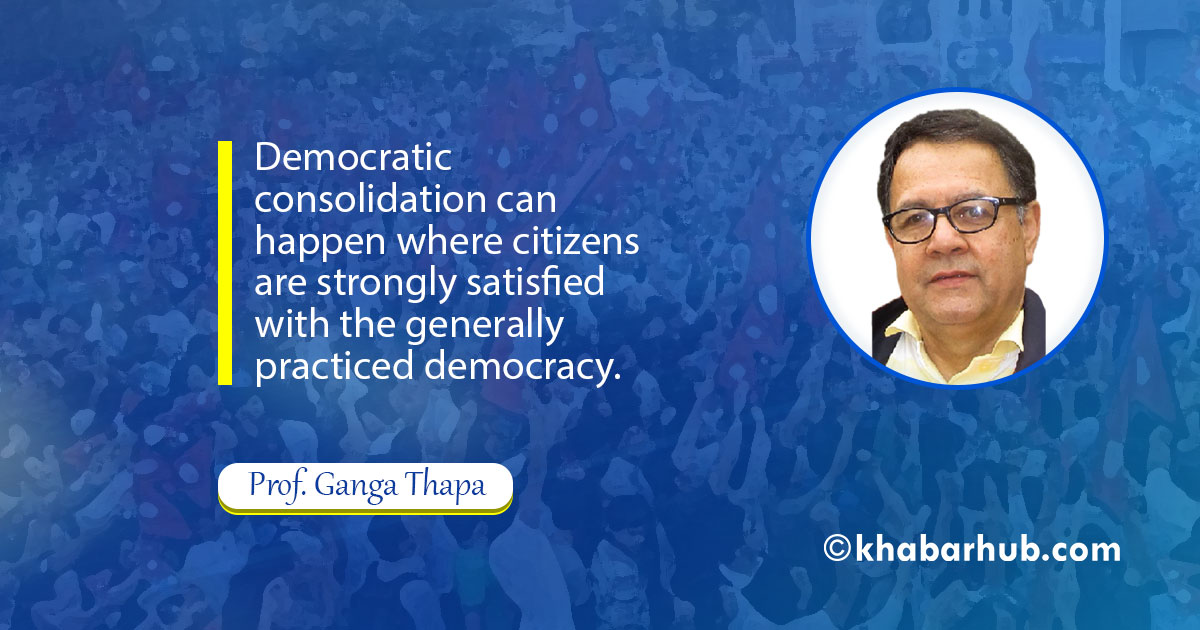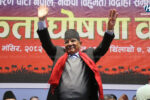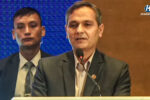It is widely said that politics cannot be easily swept under the rug. The new political system of Nepal must adhere to relevant norms in formulating the policy preferences and inculcate genuine egalitarian values while displaying productivity and output that meets social demands. In particular, the main goal of elected officials is presumed to have unique responses to problems assessing political attitudes that bolster economic opportunities for the lower and middle classes, which in turn may lead to higher civic participation, one could argue.
Unfortunately, Nepali leaders are deemed ineffective because they have to face impenetrable barriers, especially while facing the crypto-plutocratic distribution of power.
From what we have heard so far, if power be distributed in the hands of many people and if individual citizens were sufficiently clear, politically informed and consistent, it would be generally understood that the political system is functioning through the will of the governed while seeking to monopolize the legitimate use of physical force as a means of domination within the territory, to borrow Weber.
Unfortunately, Nepali leaders are deemed ineffective because they have to face impenetrable barriers, especially while facing the crypto-plutocratic distribution of power. As a result, there are widespread beliefs regarding the unpredictable environment, uncontrollable polity and inequality in politics due to which there is failure to execute the rule of law in view of democratic responsiveness that has, in turn, contributed to successive erosion of democratic values, which, in a large part, discourages the people to get involved in a new form of political activities. Surely, it is not easy to ignore such development.
It is not that common people always remain passive and neglect the ongoing political process; rather, their views and opinions are often ignored because they are considered as having little knowledge of politics. As a result, society gets deprived of having crystallized preferences on a specific political issue in time.
Upon slightly closer examination, one would find Nepal’s political development since 1990 is patronage-driven, where a politician’s top of the political agenda and political atmosphere, in general, are driven by pork-barrel politics that play a big part in winning elections in all political arenas through various means and tactics. Indeed, the political conditions since the abolition of monarchy in 2008 are significantly different from those prevailing in the 1990s. There is a semblance of a new political climate where in reality the politicians are attempting to take advantage of shifting political clouds that ultimately create a bad reputation to those who become totally unresponsive to the opinions and the preferences of their constituents. It is not that common people always remain passive and neglect the ongoing political process; rather, their views and opinions are often ignored because they are considered as having little knowledge of politics. As a result, society gets deprived of having crystallized preferences on a specific political issue in time.
Modern democracy calls for mass participation. In fact, democratic consolidation can smoothly happen where most citizens are strongly satisfied with the generally practiced democracy (Norris 2019). However, O’Donnell (1999) and many other scholars acknowledge that democratic consolidation may occur if the ‘politically significant’ groups consider the political institutions as the only legitimate arena for political contestation in addition to having a free formulation of political preferences through the use of basic freedoms of association, information, and communication. Indeed, there have been differences in perceptions of the extent and implications of factual questions about politics and public affairs in Nepal that seem to be strongly influenced by partisan attachments due to the effect of the newly established political context. These practices often bear much of the blame for hindering the successful pursuit of any development strategy and providing government accountability, responsiveness, and transparency.
This lets us understand and institutionalize various participatory program processes besides providing evidence that democratic consolidation, after all, is a lengthy process that may require more than one generation.
It should not be surprising that there are many dark corners where we may focus our attention on political institutions and their procedures and practices which include elections, political parties, interest groups, and under-consolidated representative institutions. The situation is particularly disappointing in Nepal, although it is evident that conceptualization and legitimization of federal democratic republic give us a chance to look at the model of governance where democracy and political system are remarkably modest.
This lets us understand and institutionalize various participatory program processes besides providing evidence that democratic consolidation, after all, is a lengthy process that may require more than one generation. It is also well-established that democratic political change is supposed to open the windows of opportunity when an individual and groups of people are allowed to act against the prevailing political, social and economic conditions and suggest their proposals for policy solutions to the problems concerning a variety of sectors.
Nevertheless, the federal democratic republic conceived in Nepal ten years ago has come to be dominated by the hegemonic factor where individualization of politics is on the rise and political uncertainty remains robust. So, it is difficult in a way to maintain governmental integrity, reliability, fairness, and responsiveness to move toward the standard conceptualization of liberal democracy, as noted aptly by Pippa Norris (2019). When we take into account the political representation on demographic terms, e.g., Mongol vs. Indo-Burmese people, rather Hills vs.
Madhes people, all the research done in Nepali politics till now fails to determine who has a better chance of winning at a certain constituency, which is a key factor for certain individuals to have access to positions of power at various levels. In nutshell, we must recognize that a new effective system for political, economic and social management that may bring about comprehensive reforms in many fields has not been established or rationalized yet, despite the formation of the democratic, secular and federal state. It turns out, however, that it would be a long-term ordeal that cannot be achieved in a short time; for low level of political efficiency is one of the vital obstacles for Nepal’s political development to ensure for democratic rules of the game, particularly during the moments of turbulence and political confrontations when many mixed elements play an important role to hinder the pursuit of democratic consolidation, the success of which usually requires complete transformation of the society’s political culture for tangible benefits.
Nevertheless, it would be logical to assume that Nepal’s current political conditions are different from those prevailing some years ago and the present regime should usher in new socioeconomic reforms, improve the political environment significantly and be able to proceed smoothly in a relatively short period of time if it continues to broaden democratic consensus, political rhetoric is diluted, and particularly, if the key political institutions such as the executive, legislature, judiciary, and the newly set up federalism becomes sincerely responsible and widely acceptable to meet the conditions so that the provincial institutions may operate on their own and provide whatever is necessary to make sure that everyone has an equal opportunity to succeed and above all, if the leaders are committed to believing in justice and efficacy of the system, besides enabling the citizen to have a say on development plans and strategies through participatory mechanism and transparent and accountable system.
(To be continued…)
Views expressed in this article are the author’s own and do not necessarily reflect the stance of Khabarhub.









Comment